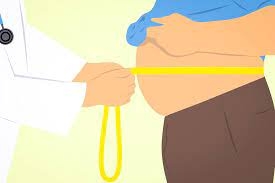
Nafisah Nubah: If you’ve been a teenager and you’ve been to school, you’ve probably been or seen
others to be ashamed of being fat. It’s scary how prevalent and normalized fat shaming – a form of weight discrimination or weight bias – is in our society today, especially among young adults, and here’s why.
The Psychology behind Fat Shaming
So let’s talk of fat shaming: Why do people do it?
The instinct to react negatively with fat people stems from our subconscious biasness against larger bodies.
This bias exists greatly due to decades of negative media representation. Sitcoms so frequently use overweight characters’ bodies as the basis of many of their jokes, and shows often portray overweight characters as the unpopular or unattractive one of the group.
Commercials and advertisements do not use enough plus size models. Celebrities and influencers inject diet culture onto their fans. All of these perpetuate the idea that a bigger body is a less attractive body.
Thus, fat-phobia is born. Whether in a well-intentioned attempt to somehow help them or in an ill-intentioned attempt to make them feel bad, they urge to comment on the size of someone’s body always comes from a place of irrational bias, from the deep-rooted internal belief that larger bodies are unhealthy or not “normal”. And since this bias is completely baseless, it is high time we put in the work to grow out of it.
Debunking the Myths A common belief surrounding weight stigmatization is that it is justifiable and may
motivate individuals to adopt healthier behaviours.
This, backed by science, is a misconception.
A study by behavioural scientists at University College London found that, rather than encouraging people to lose weight, fat shaming led people to put on more weight. This is because one can never be shamed of or bullied into making the necessary lifestyle changes to lose weight. If anything, it makes them feel depressed and anxious and as a result, what they then do is self-destructive. It is also important to note that size does not equate health. While it is true that people who are at the extreme ends of the body weight spectrum may be more susceptible to certain health conditions, weight is never an accurate measure of health.
With that said, do some fat-shamers truly have good intentions?
Nine out of ten times, they don’t. And should they be excused? No. A fat-shamer is not caring for
their classmate when they laugh about how their classmate has a funny walk, or when a teacher mocks their student saying they will never be good at sports, or when a “friend” keeps making their friend the butt of the joke despite their
discomfort. And it is certainly never in service of their health. Regardless, we are more than a sum of our intentions, so in any case, “I only care about their health” is never a good excuse for fat shaming.
And most importantly, did the person actually ask you for health advice?
If not, then your unsolicited remarks are probably not coming from a place of genuine care but rather a place of bias or hate, and you should probably just mind your own business.

How it affects teen victims
We are the most vulnerable to outside opinions of ourselves when we’re teenagers. A lot of how we view ourselves is shaped by how well-regarded and accepted we are by our peers. Being subjected to weight stigmatization not only makes
teenagers feel less about themselves, it also makes them feel ostracized. Over-weight teenagers commonly face bullying and harsh remarks aimed at their size–
by their classmates, and sometimes even their teachers and families.
This induces a negative view of their body in them, and makes them feel an increased pressure to lose weight. Studies have shown that fat shaming is a significant risk factor for depression, low self-esteem and body dissatisfaction. In extreme cases, it can even lead to fatal eating disorders like anorexia. It is deeply worrying and quite obvious, if we just look around ourselves, how normalized fat shaming really is today. It is high time we recognize the harm that comes with such prejudice, and do better.
It takes a lot away from someone when we shame them, but it never takes anything away from us to be kind to others.
———-
Nafisah Nubah
Education: Studying Alevel AS
School: Dhanmondi Tutorial

